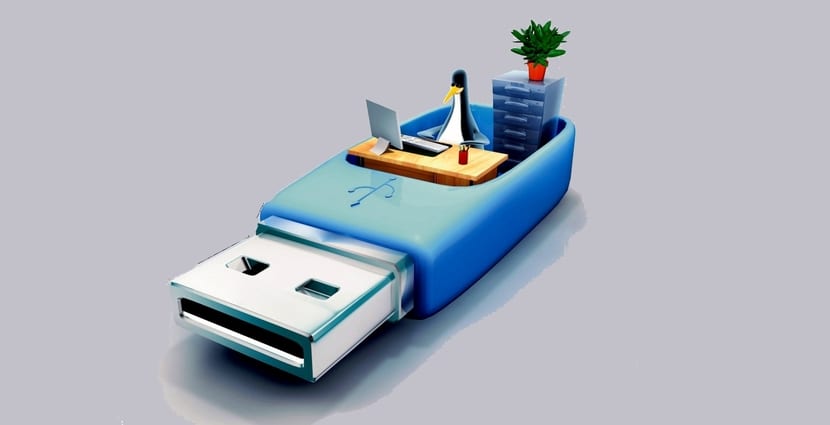
Hello, what a good day dear readers, this time lI will show how to format our USB devices from the terminal without the assistance of a program, although some may think that it is easier with the help of a tool, it is good to know how to do it from the terminal.
On several occasions I have seen myself in the need of having to change the format of some USB device in which I always turn to Gparted for it, although I can tell you that on certain occasions Gparted throws me errors and it is a headache.
That is why I resort to the use of the terminal for this work, to format a USB.
To begin lor first we will have to do is identify in which mount point we have our USB, for this we will have to open the terminal and run the following command:
sudo fdisk -l
With it, it will display the information about the partitions and what mount points it has, it displays something like this:
Device Boot Start End Sectors Size Id Type /dev/sdb1 2048 1213757439 1213755392 578.8G 7 HPFS/NTFS/exFAT /dev/sdb2 1213757440 1520955391 307197952 146.5G 7 HPFS/NTFS/exFAT /dev/sdb3 * 1520957440 1953519939 432562500 206.3G 83 Linux Device Boot Start End Sectors Size Id Type /dev/sda1 2048 312580095 312578048 149.1G 7 HPFS/NTFS/exFAT Device Boot Start End Sectors Size Id Type /dev/sdc 64 25748 7.4G 7 HPFS/NTFS/exFAT
Here my USB device is 8Gb so the mount point is / dev / sdc, now we only have to define in which file system we will format our USB, by typing mkfs and with the tab key it will display the formatting options.
mkfs mkfs.exfat mkfs.f2fs mkfs.msdos mkfs.xfs mkfs.bfs mkfs.ext2 mkfs.fat mkfs.ntfs mkfs.btrfs mkfs.ext3 mkfs.jfs mkfs.reiserfs mkfs.cramfs mkfs.ext4 mkfs.minix mkfs.vfat
In my case, I am interested in formatting it in Fat32, so the command would look like this:
sudo mkfs.vfat -F 32 /dev/sdc -I
It is composed in this way:
mkfs.vfat, is the FAT format -F32, the FAT32 format type /giant/ndc, the path of the USB device -I, so that mkfs allows us to create a file system on the USB device
To know the information about the types of format we just have to write the one we choose and give a tab so that the terminal displays the options with your information.
If you know of any other alternative, do not hesitate to share it with us.
My problem is that he always tells me the same thing.
Disk / dev / sdc: 30 GiB, 32212254720 bytes, 62914560 sectors
Units: 1 * 512 sectors = 512 bytes
Sector size (logical / physical): 512 bytes / 512 bytes
I / O size (minimum / optimal): 512 bytes / 512 bytes
Disc Label Type: Two
Disk ID: 0x8f9bd31b
Device Start Start End Sectors Size Id Type
/ dev / sdc1 * 2048 526335 524288 256M c W95 FAT32 (LBA)
/ dev / sdc2 526336 62890625 62364290 29,8G 83 Linux
loren @ loren-B85M-D3H: ~ $ sudo mkfs.ntfs / dev / sdc -I
Could not open / dev / sdc: Read-only file system
loren @ loren-B85M-D3H: ~ $
loren @ loren-B85M-D3H: ~ $
loren @ loren-B85M-D3H: ~ $ sudo umount -f / dev / sdc
umount: / dev / sdc: not mounted.
loren @ loren-B85M-D3H: ~ $ sudo mkfs.ntfs / dev / sdc -I
Could not open / dev / sdc: Read-only file system